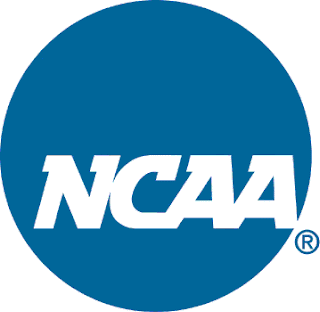 College football is a big deal. Every Saturday afternoon thousands across the nation flock the stands to see their favorite college team play. While many more watch their favorite team on television it is pretty obvious that college football is a big deal. The NCAA is a voluntary organization that involves over 1,281 institutions. In essence the NCAA sets rules for colleges to follow in regards to sports athletic programs. For instance players that are going to be recruited to play college sports can’t take gifts or money from booster clubs or schools. Two movies that illustrate this are “Blue Chips” and “Johnny Be Good”. College sports are a big business. In 2008, the total revenue generated by the FBS (Division 1 schools for football) was over $41 million. Clearly, this is as much as some publicly traded companies make. Although this seems like a lot on average each school loses around $2.46 million dollars. Right now there are 120 Division 1 schools. No one really talks about this though. In a way it could be seen as the darker side of the NCAA. I wonder why no one talks about this darker side of college sports. It should be pointed out that large schools such as the University of Texas and Ohio State are the only few that produce a large revenue stream for their schools. Most of the revenue comes from licensing and merchandising.
College football is a big deal. Every Saturday afternoon thousands across the nation flock the stands to see their favorite college team play. While many more watch their favorite team on television it is pretty obvious that college football is a big deal. The NCAA is a voluntary organization that involves over 1,281 institutions. In essence the NCAA sets rules for colleges to follow in regards to sports athletic programs. For instance players that are going to be recruited to play college sports can’t take gifts or money from booster clubs or schools. Two movies that illustrate this are “Blue Chips” and “Johnny Be Good”. College sports are a big business. In 2008, the total revenue generated by the FBS (Division 1 schools for football) was over $41 million. Clearly, this is as much as some publicly traded companies make. Although this seems like a lot on average each school loses around $2.46 million dollars. Right now there are 120 Division 1 schools. No one really talks about this though. In a way it could be seen as the darker side of the NCAA. I wonder why no one talks about this darker side of college sports. It should be pointed out that large schools such as the University of Texas and Ohio State are the only few that produce a large revenue stream for their schools. Most of the revenue comes from licensing and merchandising. The general viewpoint is this romantic notion that college athletes go to these “football factories” and somehow get an education while at the same time supporting their school on the field with their displayed skills and talents. In addition to this, college players receive very little compensation for their work. Yes, these players get scholarships and maybe room and board but aren’t they providing something of value to consumers. For instance, people pay to see minor league baseball teams and players get part of that in the form of their contract. College players however don’t get paid for their performance even though the minor league players and college players are similar. While the college might provide scholarships and room and board to star players the marginal cost to the school is close to zero. Why not have a market for college players to compete and get paid for their services? Paying players would also reduce the number of scandals in recruiting. If players could sign contract with colleges they would have less incentive to take bribes from booster clubs or school officials. Also many of these players don’t go on to a professional career (even if a player gets drafted a very small minority turn out to be good). Under a contract system players could get paid and save up money to prepare for life after football. The book “Friday Night Lights” shows what happens to student athletes after high school. One of the main characters” Boobie” Miles is one of the most sought after high school players in the country. Unfortunately, Boobie gets injured and tears his ACL and blows his dreams of playing college football. In addition to Boobie, most of the players in the book really didn’t think about life after high school football (Brian Chavez is the expectation who goes to Harvard). These players are only left with the highlights their glorious playing days and really don’t have limited options regarding life after high school. If college contracts were possible it might give these student athletes more of an incentive to go to school.
Although, it would be nice to see the NCAA give high school athletes contracts I doubt it would ever happen given the NCAA would like to believe that their players are on the field to get an education and support their school. If anyone looks at history though clearly this is not true given the scandals in college sports. The biggest example of this was SMU and the payola scandal in the 1980’s which forced the NCAA to give them the death penalty (not allowing SMU to compete for the 1987 football season). I don’t know how many programs engage in this behavior but I believe the NCAA underestimates the amount of side deals that are made because college players aren’t allowed to sign contracts.




No comments:
Post a Comment